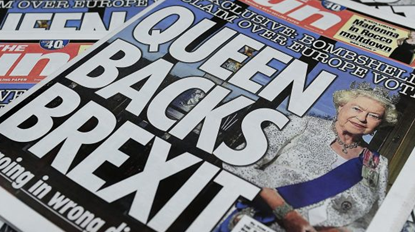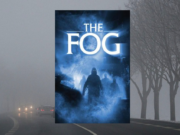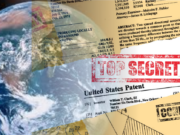 Princess Elizabeth in Natal on her 21st birthday
Princess Elizabeth in Natal on her 21st birthday
by Mary W Maxwell, PhD, LLB
Today it was announced that a court has ruled that the UK cannot do “Brexit” without an act by Parliament. I imagine many citizens will debate the particulars of the law on that subject.
I shan’t actually discuss this “case.” I prefer to throw a tantrum about the UK ever having joined the EU. And more fundamentally I wish to show my exasperation at the way we are trashing our heritage as “Henglishmen.” (Yes, I am using a Gilbert & Sullivan reference there.)
When Did Human Societies First Form?
Some time ago, maybe 5 or 6 million years before the metaphorical Adam and Eve, a human ancestor, that is, a hominid, became distinguishable from the apes. By 4 million years ago he was running around with larger brain than the chimpanzee, and was quite short of build.
By 100,000 years ago he was recognizably human and by 40,000 years ago was drawing pictures on the walls of caves.
Five questions: What ethnic group was he? Who was his prime minister? Did he vote? Did he love his enemy? Would he like to join the EU?
I think I can answer those questions using sociobiology as a guide. What ethnic group was he? His ethnic group was whatever had resulted from a branching off from some earlier group.
That is, if his gene pool got sufficiently different from the main group, I suppose we could call it an ethnic group. Its members wouldn’t have given their tribe a name, as they would see themselves as the normal people — the baseline, as it were — and view other groups as needing labels.
Who was the prime minister? Even the smallest group has an identifiable leader, perhaps just the person with the most initiative, or the most arrogance, or one who is in a big family. (If you can count on brothers and uncles to back you up, that sign of strength may make others willing to submit to you.)
Did he vote? Yes, caveman voted. He voted by going along with what the “leader” commanded, or by giving that leader a punch in the jaw as the case may be. Or maybe he urged a few neighbors to try a plan that was not in accord with the leader’s preference. Note: individuals mostly do obey a leader.
Did he love his enemy? That’s an easy question to answer. No, of course not. When we see an enemy group we think of protecting ourselves against them, not of helping or caring about them.
Would he like to join the EU? In cavemen days there was probably no really huge group for him to join, but generally speaking people do gravitate toward something bigger than their local group. So, yes.
Note: even after we got to live in huge, modern societies people have liked to play with the idea of their being a “family of man.” I think this is a mental error, but a pleasant enough sentiment.
The EU Took Fifty Years To Grow
Let’s get to the subject at hand, Brexit. And it’s predecessor: Britain’s joining of the European Economic Community in 1973.
I will argue that the EU is a bad joke. People were drawn into the “the Common Market” as a way of gaining economic strength – a trade alliance, as it were. Then in 1957 it became a larger group, sill claiming to be trade-ish: the European Economic Community. Then it gained some shared law as the “European Community.”
In the 1990s all member states were asked (politely, of course) to give up much of their sovereignty to a new political entity, the European Union. Then, in 2004, a group of 10 former Communist states of Eastern Europe “were admitted.” Today there are 28 nations in the EU. (Most but not all use a single currency, the euro.)
There is a Parliament of Europe, directly elected by the people. It meets in Strasbourg, France. It passes laws, but the Council has much authority and can veto any law.
I won’t discuss the EU any further, as the argument I’m eager to make is a psychological and biological one, not a historical one.
The Tribal Myth
Before there were nations there were tribes and each of them no doubt had a “heritage.”
Consider a very isolated group such as the Inuit at the tip of North America. How do the people stick together? They do so by mutual dependence on one another for physical survival (there are no Eskimo hermits) and dependence on the myth of what-they-are.
It is my guess that the ability to believe in such a myth is innate, that is, genetic. Perhaps it’s some combination of the emotional gene that make us want to band with others and the intellectual gene that make us take a small fact and enlarge it to a great concept.
In Darwin’s scheme, those particular genes, having made their owners fitter than the competition, would be replicated in progeny. At some stage, the poets or storytellers of the group would have settled some of those groupie feelings into a myth. God knows, we need our myths. We need simple symbols to convey complicated truths.
The modern nation of Australia is the offspring of Britain. From the moment Captain James Cook landed in Botany Bay, the British myth took hold here. Gradually the local culture developed, and based on the experience of the settlers, an Australian myth developed.
This is well reflected in songs such as Waltzing Matilda, I Am, You Are, We Are Australian, and I Still Call Australia Home.
But I am here to talk about law and government and how we need that part of the myth. I am dying to tell people that merging into a supranational entity is stupid.
As we have seen recently with the proposed TPP, some persons (nameless!) have arranged for many nations to sign up for some “trade benefits” which will come at the price of inability of the nation’s parliament to legislate freely. Amazing!
The article at hand was stimulated by Britain’s crazily handing over its sovereignty to a multi-national group, the EU. (I pass over its joining the UN in 1945. The “United Nations” is not a legislature; it has never passed a law of any kind.)
I inveigh against the UK restricting its own law-making sovereignty. This is a sin against every Henglishman. So let us now discuss such abstract ideas as “the Crown” “parliamentary authority,” “sovereignty,” and “heritage.”
The Emergence of England’s Law
I don’t know England’s tribal history well enough to speak of it. Julius Caesar invaded the place in 55 BC and “Roman Britain” exited for the next four centuries. The Normans conquered the place in 1066, bringing in the French language.
I’ll start with the event at Runnymede in 1215. The Magna Charta was not dreamed up from high ideals but from the needs of the individual. By this point there had already been several centuries of Kings of England. They did not exactly have the firepower of – pardon me – Homeland Security.
They had to get by with cobbling together enough supporters to be able to stay alive and “in office.” From that office they may have got a bit cocky and so, in 1215, some of the barons had a mind to restrict the arbitrary rule of the king. They “ambushed” him and forced him to sign the great charter.
You see, I have no illusions about where great ideals come from. They – like anything else – are the result of biological urges. But the fact is that people could later use that document as a high ideal. Indeed we have definitely done so.

“The Crown”
We have a king. Or, at the moment, a queen. In my Gumshoe article of January 15, 2015, I pointed to the importance of the coronation service in which the people are asked if they recognize the queen. They shout “yes.” Then the oath is administered:
Archbishop: Will you solemnly promise and swear to govern the Peoples of the United Kingdom of Great Britain and Northern Ireland, [and others, including Australia] according to their respective laws and customs?
Queen: I solemnly promise so to do.
Archbishop: Will you to your power cause Law and Justice, in Mercy, to be executed in all your judgments?
Queen: I will….
Then the Queen …laying her right hand upon …the great Bible (tendered to her as she kneels upon the steps), [says]: The things which I have here before promised, I will perform, and keep. So help me God….
So now we may ask, back in 1953, the day Elizabeth II was crowned, what are the laws with which she promised to “govern the Peoples”?
Those laws certainly include the Magna Charta and other major achievements of common law – excepting those that had been repealed by Parliament (and not, by the way, those that have been rode roughshod over!).
“The Authority of Parliament”
The point I want to make is the proper authority of the Crown. Who, if anyone, can undo the contract made between the queen and the people on Coronation Day? I am not aware that anyone possesses authority to do that. That includes the “authority” of parliament.
In other words, I understand all MPs to be restricted to carry out the rule by the Crown. Not arbitrary rule by the Crown, but rule that gives preeminence to the law that gradually developed over centuries in English courts: common law.
The Queen sits in Parliament in London. (She also “sits in Parliament” in Canberra, even if she never physically does so.) Moreover, the royal assent is required for any bill to be passed, both in UK and in our particular ex-colony.
Because I am imbued with American political philosophy, I find it hard to get my head around the monarch governing whilst MPs are said to be representatives of the people. You will have to allow me not to dwell on a concept of which I am ignorant. Still I can read the coronation oath and understand it!
I take it that both Her Majesty and the House of Commons must follow the law of the land. What possible grounds do they have, on which to give away the sovereignty of England to a foreign power such as the EU? None, I say. (See an great essay by Ross McWhirter on this.)
“Sovereignty”
If ever there was a word that meant strictly a conceptualization of something, it’s “sovereignty”! I guess the best way to drive it down to earth is to say that it is a claim to dignity and independence. Righteous power.
Etymologically the word sovereign comes from the Latin super – above. Sovereignty refers to the highest power identifiable in a given locality.
Biologically, I would trace our automatic understanding of the concept “highest authority” to our instinct for submission. We want to know who is boss. In the US “the people” are the boss.
That notion is hard to maintain – though we should work hard at maintaining it. A person gravitates toward seeing a king as the boss, rather than seeing himself, say a humble farmer, as boss.
Still, most people understand that the real ruler, in a republic, is “rule of law.” This is distinguished from “the rule of men.” So when you take your case to court, it is not that A or B is guaranteed to win, but “the law” (being the ruler) will always win. Same in England, of course.
And Now to “Heritage”
I was inspired to think about this by an excellent 1987 book by Alan Gourley, Democracy and Treason in Australia. Recall from Gumshoe’s many laments and dare I say, bitchings, that a cabal of some sort is out to wreck our religions, our national sentiment, our educational systems, and even our family life. Boy do they think big!
Oh yeah? Well they don’t think big enough. They are stuck at the stage of their undoubtedly profound discovery that every person has an inner calculator of selfishness. True, they can break up a group and leave every member fighting for survival.
But this won’t happen if the people are able to trust their heritage. I mean if the people have a great heritage to begin with — and we certainly do!
In my humble opinion (not very humble, thanks to my heritage) I think the compilation of English law is fantastic. I’d be surprised if anyone could improve on it. It has everything.
It especially and famously has the ability – I’m talkin’ black-letter-law here – to get around all forms of corruption, and all forms of deceit.
English law is law directed against power-grabbers. The US Constitution is but a furtherance of that work. Thus one should celebrate to the nth degree one’s heritage of English law.
I entitled this article “What should the queen do now?” May I have your suggestions please? Don’t rule out that she is longing for her subjects to demand of her what she solemnly swore to do in 1953.
— Mary W Maxwell is a political scientist concerned about the foolishness of the human habit of letting power accumulate in the hands of the Bozos.
Photo credit telegraph.co.uk and bbc.co.uk






























I refer to Mary;s comment on the rule of law? I am not sure where she is going with this? I am now deviating to Judge Judy the American TV personality and I find in her analysis of making judgements rests significantly on proof of identification of being shown in her court paperwork substantiating claims and if the claimant has no paperwork she immediately throws it out of court, I now make reference to Australian law in arbitration of a type of court for reconciliation between conflicting interests? these so called courts are conducted without public attendance and are only attended by those who are directly involved or seen to be connected with the case, my adversaries had no paperwork to support their claim against me, I had on several occasions attempted to argue the claim they were making against me had no paper work to support their claim which was ignored by the lawyer who supposedly was neutral as a sort of judge, the case went against me and I had to sign or advised to sign a judgement of several thousand dollars to compensate the claim, later I had documentation stating they had lied and deceived this court, which at the time of this case had not this documentation, I remember in the haste of terminating and summary I signed a long document of legal jargon and I believe I saw in this paperwork a cost to Victorian taxpayers well over twenty thousand dollars paid, this novel set up in what I consider a second rate country of legislation is somewhat antiquated and corrupt.
Any talk of common law is farcical in Australia? this country has now become aligned to such low life that for many justice is now a joke, those who consider Australia a model for law are out of touch with the truth of what is going on here? I would say coming from Britain some forty years ago the justice system in Britain was a system that incorporated a greater vision of justice, these Kangaroo courts should cease immediately as being deceptive and covert.
I also refer to Mary’s comment on Authority of Parliament and the last paragraph on British sovereignty? I suggest in the aftermath of WW2, and America taking over most of British interests such as Middle east oil, considering America came in on the last vestiges of this war after most of Europe and Russia were the main adherents who won this war and America letting Europe to take the main brunt of the war and Britain paying America for war reparations not that Britain is protecting America from becoming a German colony? the reason America came into the war is if Germany had won the war in Europe and defeated Russia? which could have been possible other than Germany making the mistake of bombing London instead of manufacturing and Dunkirk and taking Britain first before opening up the Russian front would have eventually destroyed America as we know America today, sovereignty is a strange ideology that exists and equally does not exist.
Don, sovereignty is where you find it.
What a pretty picture of Her Maj. and that was 70 years ago!
What do you mean? is a sovereign citizen legitimate? as a example of what you mean?
All human beings are born sovereign that means they are not born slaves. They own their thoughts, their feelings and are responsible for their actions and no one else. The fact that dominators make a claim of ownership over human beings does not mean that human beings are not sovereign. You are perhaps wondering where the courage in people has gone, where’s the will. When people learn to come together and say No to the dominators all can demonstrate their sovereignty.
Yes, David, I think coming together is essential. Even on this website we commenters give each other strength.
Do you exercise choice? did you decide on the time of your birth? most likely free will is non existent as your body and senses and mind inform you what reality is? or is not informing you?
We don’t have a choice over being born or whether we’re going to influence the world we’re born into. We exert an influence whether we like it or not by virtue of being human.
RHEINHOLD NIEBUHR summed it up nicely:
“God grant me the serenity to accept the things I cannot change, courage to change the things I can, and the wisdom to know the difference.”
The problem is that the imprint of most folk is determined by a delusion of powerlessness
If God has put you in a compromising position would make you powerless and courage may not be the answer as you never know all the prevailing circumstances of what you think you can change.
Hitler had great courage to change reality but had not enough information to know he would become seriously compromised.
Adam & Eve weren’t thrown out of Eden. They cut themselves off by way of biting off more than they could chew and refusing to take responsibility for the consequences ( “the devil tempted me” “the woman tempted me”).
GB wasn’t created by the Romans,Normans, EU or any other trading partner/invisible entity. It’s the collective consequence of better instinct being subverted by fleeting taste/appearance sensation( short term profit). Like every other patch of dirt, it’s fate remains in the hands the Masses.
Paris is worh a Mass.
(pardon me, Berry, I couldn’t resist.) Acutually I think Adelaide is worth a ‘mass’ — in the sense you intended — and actually had one, in living memory. Great pity if it has collapsed.
When your domination over the masses relies solely on mind control one needs to keep ones ear to the ground to learn what the masses are thinking so one is not surprised by the masses violently rising up. Zbigniew Brzezinski’s “warning” in 2008, to the dominators (royalty, think tanks, bankers, social engineers, Satanists etc) that the masses for the first time in modern history have politically awoken.
https://www.youtube.com/watch?v=YZ8zq4aKOTg
Youtube is a relatively recent phenomenon beginning in around 2002 and as such has altered the power differential between the masses and the dominators.
The control of words is no longer the exclusive domain of the dominators. It may well be that a temporary retreat from global government is now taking place to concede to the British people their deep desire to be British and to bring Trump in as US president to cede to the deep desire for American’s to be American. The human spirit is ungovernable. By the way the word government is also from Latin and means “mind control” https://www.youtube.com/watch?v=8frC6sjrBPA
Goody. David is on the Hope team.
Zbigniew (how DID his mom give him that name) is on the Nervous team.
Yay.
Mary, can I suggest that you read the judgment. It is reported at R (Miller) v Secretary of state for Exiting the European Union. [2016] EWHC 2768 (Admin). It was the unanimous decision of the Lord Chief Justice, the Master of the Rolls and Lord Justice Sales, in short a top tier Court.
There was only one issue before the court for determination: whether as a matter of constitutional law the Crown acting through the executive government of the day, was entitled to use its prerogative powers to give notice under article 50 for the UK to cease to be a member of the European Union.
The Secretary of State’s argument was rejected without too much difficulty.
As the court said, the principles are well established and have been since at least 1688. the Crown only has prerogative powers recognised by the common law and their exercise only produces legal effects within boundaries so recognised.
tTe relevant legislation was the 1972 Act empowering the UK to join the EU. It follows that any move to leave must be within those statutory limits.
It is a fundamental principle that the Crown cannot use its prerogative powers to alter domestic law. That is one of our great safeguards.
Unfortunately much of the commentary on the decision has been informed by whether or not people think remaining or leaving the UK is a good thing. That is irrelevant. It is a political decision to be decided by parliament. It will be in due course.
What this judgment did was reaffirm principles that have been a safeguard for at least 350 years. We disturb that at our peril.
No, I don’t want to disturb that procedure. Yes I agree it is perilous to take a devil-may-care attitude to law.
i took a very devil-may-care on a different issue here, not the one about the need for parliament to vote. I think devil-may-caredness is exactly what is needed. Forgetting England for a moment, why would any German or Italian want to not have his Germany or Italy as his tribe?
I claim, on the basis of evolutionary biology, that we NEED a tribe. I see around me the atomization of society — partly due to the transmigrasie (which Stalin found so helpful in chopping people’s power). I love to pooh-pooh the EU and the UN.
But it’s not by any means transmigrrasie that is doing this in Australia (maybe by 10 years from now it will be.) It is the globalist culture (Facebook! Hello!) that replaces localism.
Just go to any city and see the same architecture and the same McDonald’s and hear the same music. Pity.
This happoens when people make the assumption that a trend is bound to succeed. (E.g., “we are going to have more robots and little employment” as if no one was deciding it but it is a law of physics or something.) I love to pooh-pooh trendism.
Anyway, my article here was just a paen to English law. Same as you, James. Yay!
Law,by definition, is a consensus of restrictions and requirements. Any Act that “empowers, allows, provides” etc is, by nature, perilous.
Kipling:
Now this is the law of the jungle,
as old and as true as the sky,
And the wolf that shall keep it may prosper,
but the wolf that shall break it must die.
As the creeper that girdles the tree trunk,
the law runneth forward and back;
For the strength of the pack is the wolf,
and the strength of the wolf is the pack.
One has two births, the second one is when conscience is born within the individual. Since we are born with inate intelligence and infinite creative potential we are able to do anything except transgress natural law. The natural law principle of correspondence tells us that if individuals are on the whole immoral then the whole of society will be immoral. When I was five years old I was amazed how childish adults were. You know, believing in Santa Claus, the tooth fairy, Easter bunny etc instead of discovering the truth for themselves. I therefore did not become a mind control victim from the status quo, school, culture, upbringing. Unfortunately my freedom depends on the majority of people being moral! As above so below, as within so without.
Did your parents believe in Santa?